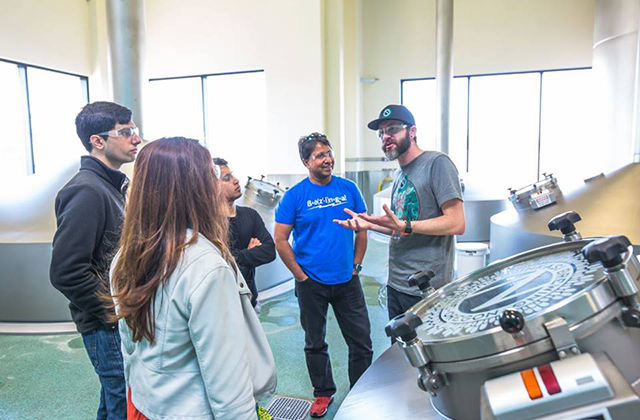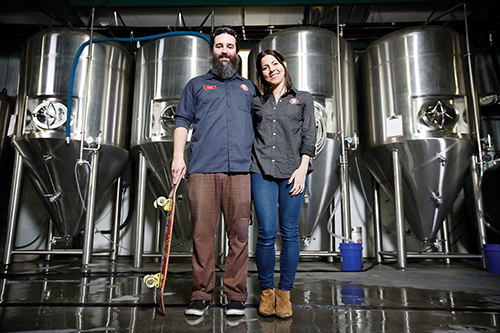
In the world of craft beer, the culture always seems to rotate around trying to make work not actually work.
People in the beer industry usually have a smile heading into “the office.” Lets face it, the job of a brewery is to produce a product that consumers drink and makes them happy.
At Eugene, Oregon’s Ninkasi Brewing, the “Chief People Officer” at the company, Cheryl Collins, says that the goal of the Ninkasi team is to perpetuate better living. It’s a statement emblazoned on its website and management seeks to make that an end goal daily.
One way to do that is to involve its staff in ways to help promote a team and community aspect while having fun to develop a cross-functional team to promote the “better living” principal.

“We are constantly talking with our teams to learn about what motivates them and how they define engagement,” Collins said.
The individuals on the team rotate roughly every year so all staff will eventually get to participate.
An added benefit, Collins noted, was that since these functions are staff led, a group leader is given a chance to develop leadership skills in the process.
Ninkasi builds its effort off trust of individuals and teams that can communicate and respect each other while having a sense of community and yet keep their humor.
“When people genuinely believe they are supported they become highly engaged and are the critical members of your team,” she said. “To achieve [that] atmosphere there should be an emphasis on clear communication and an environment where people are valued and respected for their contributions.”
Problems can still arise, but conflict resolution is directed at having those in conflict take ownership of problems that arise.
“We are comfortable identifying, facing and discussing problems,” Collin said of the Ninkasi staff. “We see unwanted outcomes as symptomatic of a deeper cause and work as a team to identify the “why” and not the “who” regarding root causes.
“We … understand what we are trying to solve, why it is a problem, and what is at the root of the problem before we attempt to solve it.”





2 Trackbacks / Pingbacks